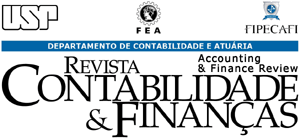The Efficient Market Hypothesis (EMH) has revealed to be one of the most influential theories in finance and constitutes the basis for countless asset pricing models. Its applications range from traditional Corporate Finance models to advanced theories, used to identify the just price of financial derivatives. One of the EMH pillars is the possibility of arbitration as a mechanism to correct possible deviations from market efficiency. According to classical market efficiency theory, even in an environment characterized by the presence of some not totally rational investors, the possibility of arbitration would annul their effect on the prices of traded assets, taking them back to their basic value. Nevertheless, a relatively new and increasingly important area in Finance, called Behavioral Finance, has shown that, in real markets, the possibility of arbitration is often costly and unviable, compromising its use as a market regulation tool and even the classicaldefinition of market efficiency, which is the correct reflection of existing financial asset information in prices. This study deals with the importance of arbitration for the EMH and discusses its theoretical aspects. Next, adopting a Behavioral Finance approach, the main problems for its efficient usage are surveyed, as well as their consequences for the EMH.
Efficient Market Hypothesis; Behavioral Finance; Arbitration

